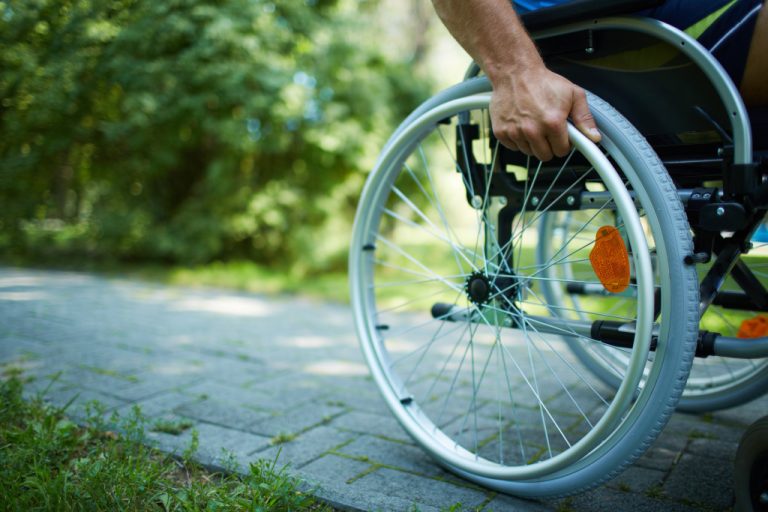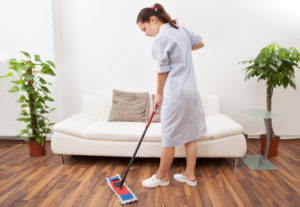- Caregiving for a spouse with disabilities can be overwhelming, so self-care is essential to maintain physical and emotional health.
- Understanding the challenges of providing care and managing work responsibilities helps prioritize self-care activities.
- Self-care can help reduce stress, prevent burnout, and improve the overall mood of the caregiver and the spouse with disabilities.
- Utilizing resources like respite care services or community centers can help manage caregiving responsibilities while taking time for self-care.
- Overcoming guilt or misconceptions about self-care requires a shift in perspective; it’s not an indulgence but a necessity.
Caring for a spouse with disabilities while working full-time can be an all-consuming endeavor. Balancing caregiving duties and work responsibilities can leave little time for personal well-being. However, as a caregiver, caring for yourself is essential to maintaining physical and emotional health.
As a caregiver, your well-being is as important as that of the person you care for. Taking care of yourself allows you to provide better care for your husband with disabilities and fulfill your responsibilities at work.
Ignoring your needs can lead to burnout, stress, and physical or emotional health issues. Self-care can help you manage these challenges and attain a better balance in your life.
The demands of caregiving and work responsibilities can be overwhelming. Caring for a spouse with disabilities requires patience, empathy, and specialized skills. At the same time, work-related stress and time constraints can further complicate the situation. Neglecting personal well-being in this context can create a vicious cycle of stress and fatigue.
Understanding the Challenges
Caring for a spouse with disabilities often involves a lot of physical and emotional demands. Depending on the severity of your spouse’s disability, you may need to help with everyday tasks like bathing, dressing, and feeding.
On top of that, there may be medical appointments, therapy sessions, and medication management to juggle. It’s common to feel overwhelmed, anxious, and exhausted from the demands of care.
The Demands of Caring for a Husband With Disabilities
The demands of caring for a husband with disabilities can take a toll on your health and well-being. It can be easy to put your needs on hold and focus solely on your spouse’s needs. However, neglecting self-care can lead to burnout, depression, and other health problems.
Taking breaks when needed and prioritizing self-care activities like exercise, meditation, or hobbies that bring you joy is important.
Work-Related Stress and Time Constraints
Not only do you have the demands of providing care for your spouse, but you also have the demands of your job. Balancing both can be difficult and some days it may feel impossible. The stress of work can add to the already overwhelming demands of caregiving.
Knowing your limits and communicating with your employer about any accommodations you may need to juggle both responsibilities is essential.
Neglecting Personal Well-Being
When caring for a spouse with disabilities and working full-time, neglecting your well-being is easy. Neglecting self-care can lead to physical and emotional health problems, making it even harder to manage the demands of caregiving and work.
Making time for yourself daily can help you manage stress and maintain a healthy work-life balance.

The Role of Self-Care
Self-care is an essential component of a caregiver’s life. It requires intentional and purposeful actions to promote overall well-being.
Making time for self-care is not an act of selfishness but a necessity to maintain your physical, emotional, and mental health. Engaging in self-care improves your mood, helps you relax, and reduces the risk of caregiver burnout.
Prioritizing Self-Care as a Caregiver
Taking care of yourself should be a top priority. Incorporating self-care activities into your daily routine doesn’t have to take too much time or effort. Start small and build up to more significant self-care activities. Here are some self-care ideas to consider:
- Go for a walk in nature
- Take a relaxing bubble bath
- Practice meditation or deep breathing
- Read a book or listen to music
- Connect with friends and family
Benefits of Self-Care for Both the Caregiver and the Husband with Disabilities
Engaging in self-care activities has numerous benefits for the caregiver and the person with disabilities. For caregivers, self-care activities improve mental and emotional well-being, reduce caregiver stress, and prevent burnout.
These activities can enhance your husband’s mood, providing a more positive caregiving experience. Making self-care activities part of your daily life can improve overall health outcomes for you and your husband.
Overcoming Guilt and Misconceptions about Self-Care
Your guilt can be a pervasive feeling when taking care of yourself. You may feel like you are neglecting your duties if you take time for yourself. There are also misconceptions that self-care is selfish or indulgent.
Overcoming these feelings and misconceptions requires a change in perspective. Self-care should be viewed as a necessary part of caregiving, not an indulgence. It’s essential to remember that taking care of yourself is not a luxury but a necessity.
Utilizing Resources and Services
One of the first steps in taking care of yourself is to utilize the available resources and services. Community care services like the Diligent Tribe Community Care can provide respite care, personal care, and companionship services to help you manage your caregiver role effectively. Diligent Tribe Community Care offers a wide range of services tailored to meet the unique needs of you and your loved one.
They offer personal care services, in-home support, and community participation, allowing you to take a break from caregiving responsibilities and some much-needed self-care time. With that, you can rest easy knowing that your loved one is receiving quality care from professional caregivers while you take some time for yourself.
Other available resources and support networks include support groups, community centers, and online networks. These resources can be a great source of emotional support and practical advice on caring for your loved one. Use resources like these to ensure you have the support you need to care for your husband and yourself.

As a caregiver, caring for yourself is crucial for providing quality care to your husband. Self-care activities are not selfish but necessary for maintaining physical, emotional, and mental health. Balancing caregiving duties and work responsibilities can be challenging, but prioritizing self-care should be at the top of your to-do list.
Remember to start small, build up to more significant self-care activities, and don’t feel guilty about taking care of yourself. Making self-care activities part of your daily routine will improve overall health outcomes for you and your husband.













